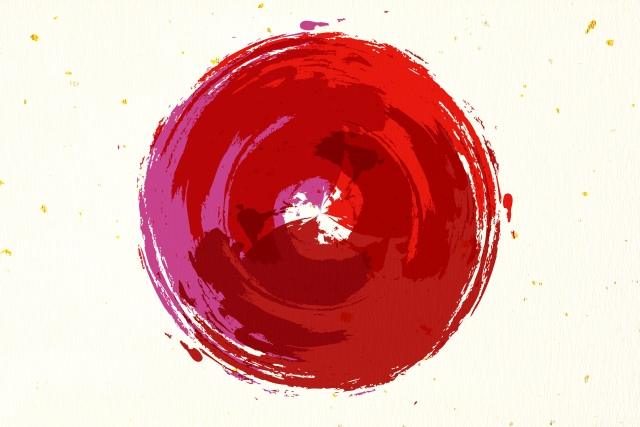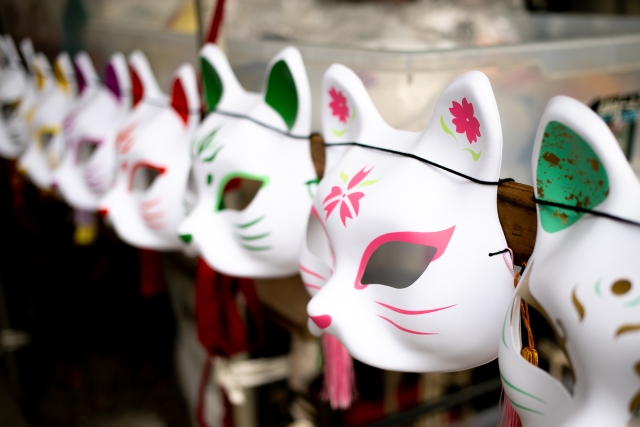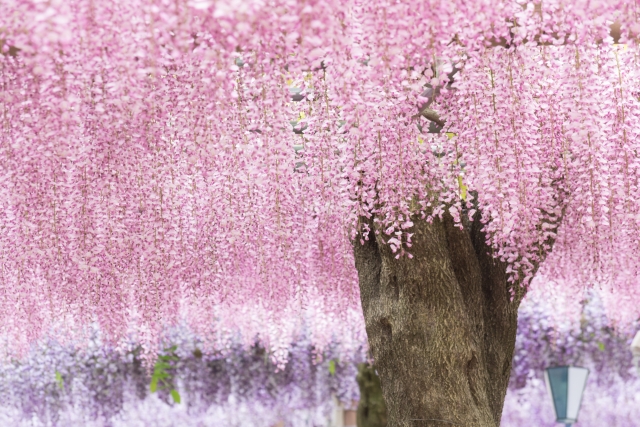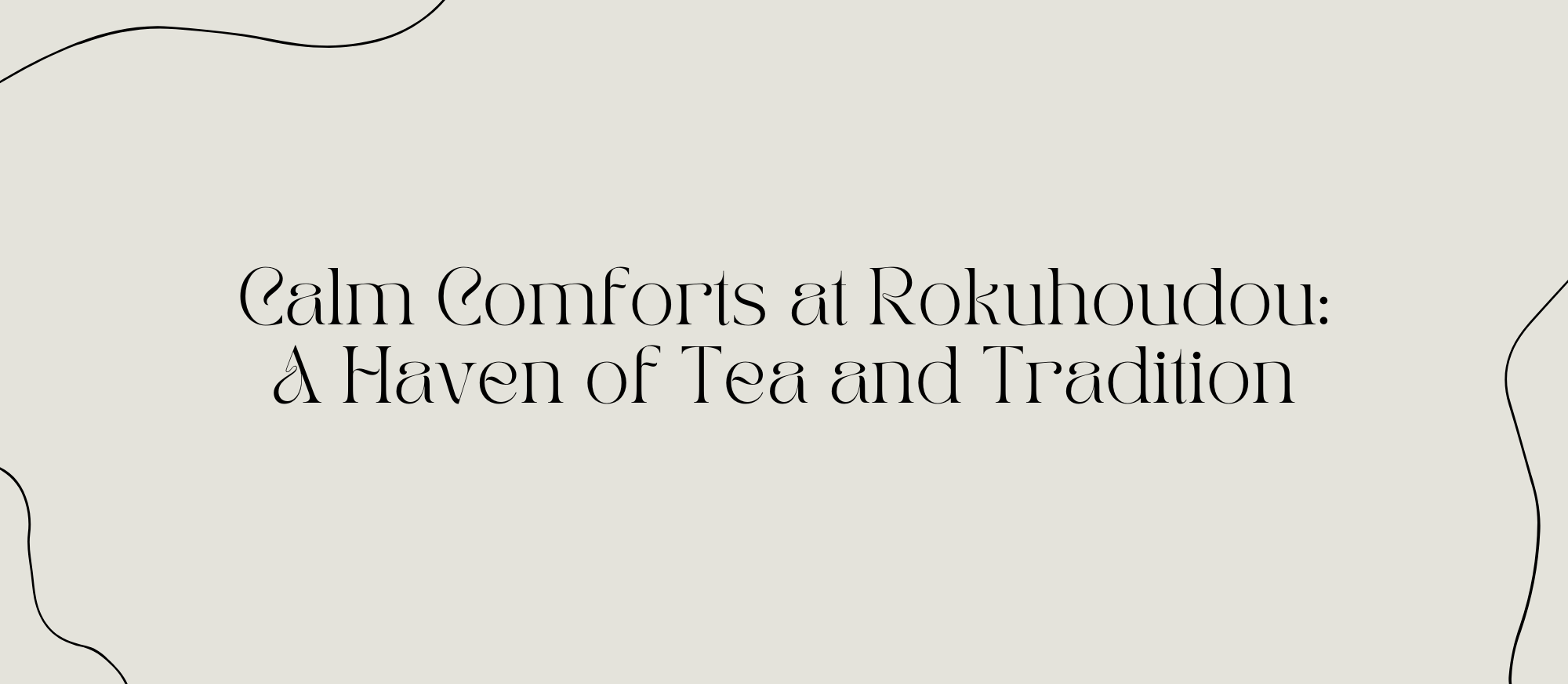Introduction

“Immerse yourself in the serene world of ‘Rokuhoudou Yotsuiro Biyori,’ an anime that celebrates the tranquil ambiance of a traditional Japanese tea shop. Nestled in the heart of the city, Rokuhoudou provides a refuge from the hustle and bustle, where the art of tea and warm hospitality blend to create a haven for those seeking a moment of peace.
The story revolves around four main characters—Sui, Gure, Tsubaki, and Tokitaka—each with their unique charm and expertise. Sui, the calm and caring shop manager, ensures that every guest feels at home. Gure, with his passion for latte art, adds a creative touch to the beverages. Tsubaki, the talented chef, enriches the menu with traditional sweets that perfectly complement the teas. Lastly, Tokitaka, the pottery craftsman, provides the shop with exquisite handmade wares that enhance the overall aesthetic and experience of tea drinking.
Together, these characters create a setting that’s not just about enjoying tea, but about experiencing a lifestyle that prioritizes mindfulness, culture, and the art of slowing down. ‘Rokuhoudou Yotsuiro Biyori’ isn’t just an anime; it’s a portrayal of the beauty found in everyday simplicity and the joy of sharing it with others.”
This introduction aims to encapsulate the essence of ‘Rokuhoudou Yotsuiro Biyori,’ inviting viewers into its soothing atmosphere while highlighting the key characters that make the series a cherished escape into the world of traditional Japanese tea culture.
Plot Overview

“Delve into the serene and contemplative world of ‘Rokuhoudou Yotsuiro Biyori,’ an anime that artfully explores the traditions of tea-making and the enriching lives of those who uphold these customs. At the heart of the series is the Rokuhoudou café, a haven where tradition and modernity meet through the daily interactions between the staff and their diverse clientele.
Each episode of ‘Rokuhoudou Yotsuiro Biyori’ is crafted like a cup of finely brewed tea, offering viewers a slice of life through stories that unfold within the walls of this tranquil café. The narrative gently explores the personal growth of the main characters—Sui, Gure, Tsubaki, and Tokitaka—as they interact with customers, each bringing their unique dilemmas and stories that resonate with universal themes of comfort, healing, and community.
The episodic format allows the show to delve into varied tales of human experience, all connected by the central themes of tradition and the art of tea. From a heartwarming episode about a lost love rekindled over a cup of tea to a reflective piece on the solitude of urban life, the series offers a rich tapestry of emotional and personal development, set against the backdrop of age-old tea-making traditions.
Through its focus on the simple yet profound interactions at the café, ‘Rokuhoudou Yotsuiro Biyori’ presents a thoughtful meditation on the importance of taking a pause, appreciating the slow and meticulous preparation of tea, and recognizing the small moments that define and enrich our lives.”
This overview aims to capture the essence of the series’ plot and thematic depth, inviting viewers to appreciate the artistry and emotional subtleties that ‘Rokuhoudou Yotsuiro Biyori’ brings to the anime genre.
Character Analysis

“At the heart of ‘Rokuhoudou Yotsuiro Biyori’ are four distinct characters whose unique personalities and roles create the tranquil ambiance of the Rokuhoudou café. Their backstories and interactions are woven together to form a narrative rich with warmth and introspection, inviting viewers to appreciate the subtleties of their relationships and the serene environment they cultivate.
Sui, the owner and main tea master of Rokuhoudou, embodies calmness and precision. His quiet demeanor and meticulous attention to detail set the tone for the café. Sui’s backstory reveals his deep connection to traditional tea-making, having inherited his skills and passion from his grandfather. This legacy drives him to maintain the high standards of the café, offering solace and wisdom to both his customers and fellow staff.
Gure, the café’s charming barista, contrasts Sui’s reserved nature with his outgoing and lively personality. A former bartender, Gure brings a modern twist to the café’s offerings with his creative and visually appealing drinks. His friendly and approachable manner endears him to the customers, making the café a welcoming place. Gure’s backstory of transitioning from nightlife to the peaceful world of tea reflects his journey towards finding balance and purpose.
Tsubaki, the patissier of Rokuhoudou, adds a sweet touch to the café’s menu with his exquisite desserts. A perfectionist at heart, Tsubaki is dedicated to crafting the perfect confectionery, often spending hours refining his recipes. His interactions with the others often reveal his softer side, as he learns to accept imperfection and embrace the collaborative spirit of the café. Tsubaki’s past, marked by rigorous training and high expectations, underscores his drive for excellence and his gradual acceptance of the joy found in simpler, heartfelt creations.
Tokitaka, the chef, completes the team with his culinary expertise. His composed and thoughtful nature makes him the backbone of the café’s kitchen. Tokitaka’s backstory is one of redemption, having left a high-pressure job as a top chef to find peace and meaning in his cooking. His journey of rediscovery is reflected in the comforting and wholesome dishes he prepares, which often become the centerpiece of the café’s community gatherings.
The interactions among Sui, Gure, Tsubaki, and Tokitaka highlight the themes of friendship, growth, and the importance of tradition. Each character brings their strengths and vulnerabilities to the table, contributing to the café’s tranquil atmosphere. Their collective dedication to creating a haven for their customers not only fosters personal growth but also reinforces the importance of community and shared experiences.
Through their distinct personalities and interwoven backstories, the main characters of ‘Rokuhoudou Yotsuiro Biyori’ exemplify the harmonious blend of tradition and modernity, serenity and creativity, making the café a place of refuge and reflection for all who visit.”
This character analysis aims to delve into the individual and collective contributions of Sui, Gure, Tsubaki, and Tokitaka, emphasizing how their personal journeys and interactions enrich the narrative and ambiance of ‘Rokuhoudou Yotsuiro Biyori.’
Themes and Symbolism

The anime series “Rokuhoudou Yotsuiro Biyori” delicately weaves together themes of hospitality, traditional values, and the importance of taking a break from the hectic modern life. Through its serene setting and thoughtful storytelling, the series invites viewers to pause and reflect on the simple pleasures and meaningful interactions that often get overlooked in the rush of daily life.
Hospitality is a central theme in “Rokuhoudou Yotsuiro Biyori.” The four main characters—Sui, Gure, Tsubaki, and Tokitaka—are dedicated to creating a welcoming and comforting environment for their customers. Each episode showcases their efforts to make every visitor feel special and cared for, whether through a perfectly brewed cup of tea, a beautifully crafted dessert, or a warm, heartfelt conversation. This emphasis on hospitality highlights the value of kindness and attentiveness in fostering connections and building a sense of community.
Traditional values are another key theme explored in the series. The setting of Rokuhoudou, a traditional Japanese tea shop, serves as a constant reminder of the cultural heritage and timeless practices that the characters strive to uphold. Sui’s dedication to the art of tea-making, inherited from his grandfather, exemplifies the respect for tradition and the desire to preserve these practices for future generations. This reverence for tradition is mirrored in the meticulous attention to detail in every aspect of the café, from the presentation of the food to the décor of the space.
The importance of taking a break from the hectic pace of modern life is also a recurring theme in “Rokuhoudou Yotsuiro Biyori.” The tea shop itself is a metaphor for a place of refuge and calm in a turbulent world. Customers come to Rokuhoudou seeking solace from their busy lives, and the tranquil environment allows them to unwind and find peace. This setting encourages viewers to appreciate the value of slowing down, taking time for oneself, and finding moments of tranquility amidst the chaos.
The series skillfully uses the setting of the tea shop as a symbol for this place of refuge. Rokuhoudou is depicted as a sanctuary where both the characters and their customers can escape the stresses of their daily lives and reconnect with themselves and others. The calm, inviting atmosphere of the tea shop, combined with the gentle interactions among the characters, creates a soothing experience that resonates with viewers and underscores the importance of self-care and mindfulness.
In conclusion, “Rokuhoudou Yotsuiro Biyori” offers a rich exploration of themes such as hospitality, traditional values, and the need for respite from modern life’s fast pace. The setting of the tea shop serves as a powerful metaphor for a haven of peace and reflection, encouraging viewers to embrace the simplicity and depth of everyday moments. Through its thoughtful storytelling and serene ambiance, the series reminds us of the profound impact of small acts of kindness and the beauty of slowing down to savor life’s quiet joys.
Cultural Impact and Reception

“Rokuhoudou Yotsuiro Biyori” has been warmly received by audiences, particularly those who are fans of iyashikei, or “healing” anime. This genre is known for its calming and soothing storytelling, which provides a comforting escape from the stresses of everyday life. “Rokuhoudou Yotsuiro Biyori” fits perfectly within this category, offering viewers a serene experience through its focus on a traditional Japanese tea shop and its welcoming staff.
The appeal of “Rokuhoudou Yotsuiro Biyori” lies in its ability to create a relaxing atmosphere. Each episode invites viewers into the tranquil world of Rokuhoudou, where the main characters—Sui, Gure, Tsubaki, and Tokitaka—dedicate themselves to perfecting the art of hospitality. This dedication is beautifully depicted through the meticulous preparation of tea and traditional sweets, which not only serve as a visual feast but also as a medium for conveying the warmth and care that defines the series.
One of the significant cultural impacts of “Rokuhoudou Yotsuiro Biyori” is its promotion of traditional Japanese culture. The detailed depiction of tea-making rituals and the presentation of wagashi (Japanese sweets) offer viewers a glimpse into the rich cultural heritage of Japan. For many international viewers, the series serves as an introduction to these traditional practices, fostering a greater appreciation for Japanese customs and culinary arts. The show’s commitment to authenticity in showcasing these traditions has been praised for its educational value, as well as its aesthetic appeal.
Moreover, the series has had a noticeable influence on promoting the cultural significance of tea and sweets. By highlighting the intricacies of tea preparation and the artistry involved in creating wagashi, “Rokuhoudou Yotsuiro Biyori” has sparked interest among viewers to learn more about these aspects of Japanese culture. This interest has translated into a broader recognition of the cultural and historical importance of tea ceremonies and traditional confectionery, encouraging viewers to explore these elements further in real life.
Critically, “Rokuhoudou Yotsuiro Biyori” has been praised for its gentle narrative and character development. The series’ ability to weave personal growth and human connection into its episodic stories resonates deeply with audiences. Each character’s backstory and their interactions with customers provide heartwarming moments that emphasize the value of empathy and understanding. The show’s focus on everyday kindness and the small joys of life offers a refreshing change from more action-driven narratives, appealing to those seeking a more introspective and peaceful viewing experience.
In conclusion, “Rokuhoudou Yotsuiro Biyori” has made a significant impact within the iyashikei genre, captivating audiences with its calming storytelling and detailed portrayal of traditional Japanese culture. Its focus on the art of tea-making and the beauty of wagashi not only entertains but also educates viewers about these important cultural practices. The series’ gentle approach to character development and its celebration of simple, meaningful interactions continue to resonate with fans, solidifying its place as a beloved example of healing anime.








